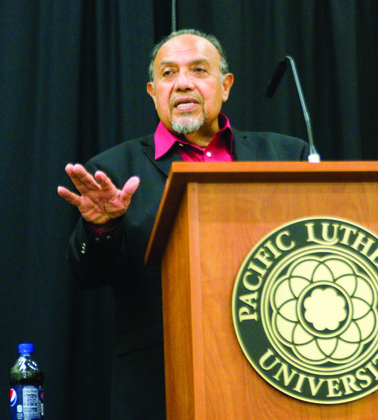Megan Longstaff
News Writer
longstmr@plu.edu
Students and faculty from the Division of Natural Sciences ventured to Vancouver, Wash., to attend the Murdock College Science Research Conference.
A total of 23 students presented research this weekend at the Murdock conference. The conference focuses on work done by undergraduate students and emphasizes the advancement of the natural sciences.
“It is really a celebration of the students’ accomplishments,” professor of chemistry Dean Waldow said. “Murdock really supports a broad interest in having undergraduate students actually doing research.”
This is an opportunity unique to students at schools like PLU. Many undergraduates do not get to perform research or do the majority of the work at larger universities because more qualified graduate students take those research positions. However, at smaller schools there are more opportunities for undergraduates to get their hands on projects.
“Moving into the research where you are actually trying to solve problems is one of the best education tools,” Waldow said.
Not only does this conference help them learn in the present, Waldow said, but the Murdock Conference helps students meet up with graduate schools to further their education.
PLU’s research program gives young scientists a foundation for successful futures. Previous students that performed research on campus have gone on to work with Nobel prize winners, gain doctorates and perform research for elite companies and organizations.
Among the projects this year is Waldow’s work with seniors Sevryn Modahl, Collin Peterson and Tom Kolibaba. Over the past few months, they’ve been working on developing new polymers to serve as electrolyte support for lithium batteries.
In basic terms: they are trying to stop your laptop battery from catching on fire.
“It’s a great opportunity,” Modahl said. “We got to present our research to other schools in the Northwest and we can get their advice and suggestions for moving forward with it.”
Also travelling is biology professor Julie Smith and seniors Emily Gunnarson and Ingrid Clark to present ecological speciation in red crossbills.
This opportunity helps students practice for future events like next spring when chemistry students will present their work at the American Chemical Society Conference. ACS is a prestigious organization and these students will be displaying their work to some of the top minds in their field.


























